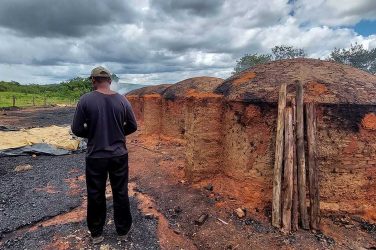 One year after introduction of the Empreender program in African countries, the project is implemented and consolidated. This is the impression of representatives of the Brazilian Micro and Small Business Support Service (Sebrae) who participated in the technical visit to the nucleus of programs developed by the institution together with the Confederation of Commercial and Business Associations of Brazil (CACB), in South Africa and Mozambique.
One year after introduction of the Empreender program in African countries, the project is implemented and consolidated. This is the impression of representatives of the Brazilian Micro and Small Business Support Service (Sebrae) who participated in the technical visit to the nucleus of programs developed by the institution together with the Confederation of Commercial and Business Associations of Brazil (CACB), in South Africa and Mozambique.
The objectives of the visits were to follow the development of the program in those countries. The group, which included the technical director at the Sebrae, Luiz Carlos Barboza, the president of the CACB, Alencar Burti, technicians and managers of both institutions and superintendents of the Sebrae in the states of Bahia, Edival Passos, Rio Grande do Norte, José Ferreira de Melo Neto, and Santa Catarina, Carlos Zigelli, visited nuclei of companies reached by the program, operated by the Seda (the Small Enterprise Development Agency), in South Africa.
"The Sebrae is attempting, starting this year, to build a clear and determined cooperation in Africa. Empreender is generating relevant results, but it is undergoing adjustment due to local adaptations the program is receiving," stated José Marcelo Goulart, of the Sebrae International Advisory Unit.
The national coordinator of Empreender at the Sebrae, Ricardo Vilela, believes that the development of the program is corresponding to expectations and is already generating significant results. "We have identified that the methodologies adapted to the local realities are working out and that there is great interest in expansion of the works," he explained.
The national team was received by the first lady of Mozambique, Maria da Luz Guebuza, for the elaboration of agendas turned to international cooperation and to develop actions in favor of small local businesses in both countries.
Three Nations
The Brazilians also visited the program nuclei in Mozambique. There, another group, made up of technicians and managers at the Sebrae and by the director at the Anprotec, Francilene Garcia, participated in the "Tri-nations Summit on Small Business", a forum to discuss micro and small companies in Brazil, India and South Africa.
Among the topics discussed at the Tri-nations were topics like innovation of technology, with visits to company incubators and to the center of Technological Demonstration of Mozambique, and franchise model structuring. In visits to incubators, the manager of the Unit for Access to Innovation and Technology at the Sebrae, Paulo Alvim, declared that the country has a very effective policy of business integration. "This is an opportunity for cooperation turned to the establishment of technological solutions for the transfer of knowledge," she said.
To the coordinator of the Franchise program at the Sebrae Market Access Unit, Patrícia Mayana, the visit was advantageous, mainly due to the incubator and franchise projects implemented in Africa. According to the consultant, "the work developed for insertion of small companies is complete, mainly in the area of markets".
Transferring Knowledge
Since 2007, institutions supporting micro and small companies in South Africa, Colombia, Chile, El Salvador, Mexico and Mozambique have been operating using the Empreender methodology, developed by the Sebrae and CACB. The proposal of internationalizing the program arose after a large event in South Africa, which included the participation of the CACB and of trade associations from over 60 countries. At the occasion, several asked for the transfer of knowledge from the Brazilian program.
Empreender supports trade and business actions originated by sector nuclei and appreciating the positive aspect between businessmen. Through the nuclei, which bring together companies in one sector, it is possible to get in direct contact with other companies, to seek common solutions to matters that, alone, businessmen would have difficulties to solve.
The program's methodology came from Germany and started being implemented in Brazil the state of Santa Catarina. After modifying it to the national reality, it started being implemented throughout the country. Since then, the program has already benefited over 30,000 companies in around 500 cities. Today, 2,000 sector nuclei are operating in Brazil.
Sebrae




